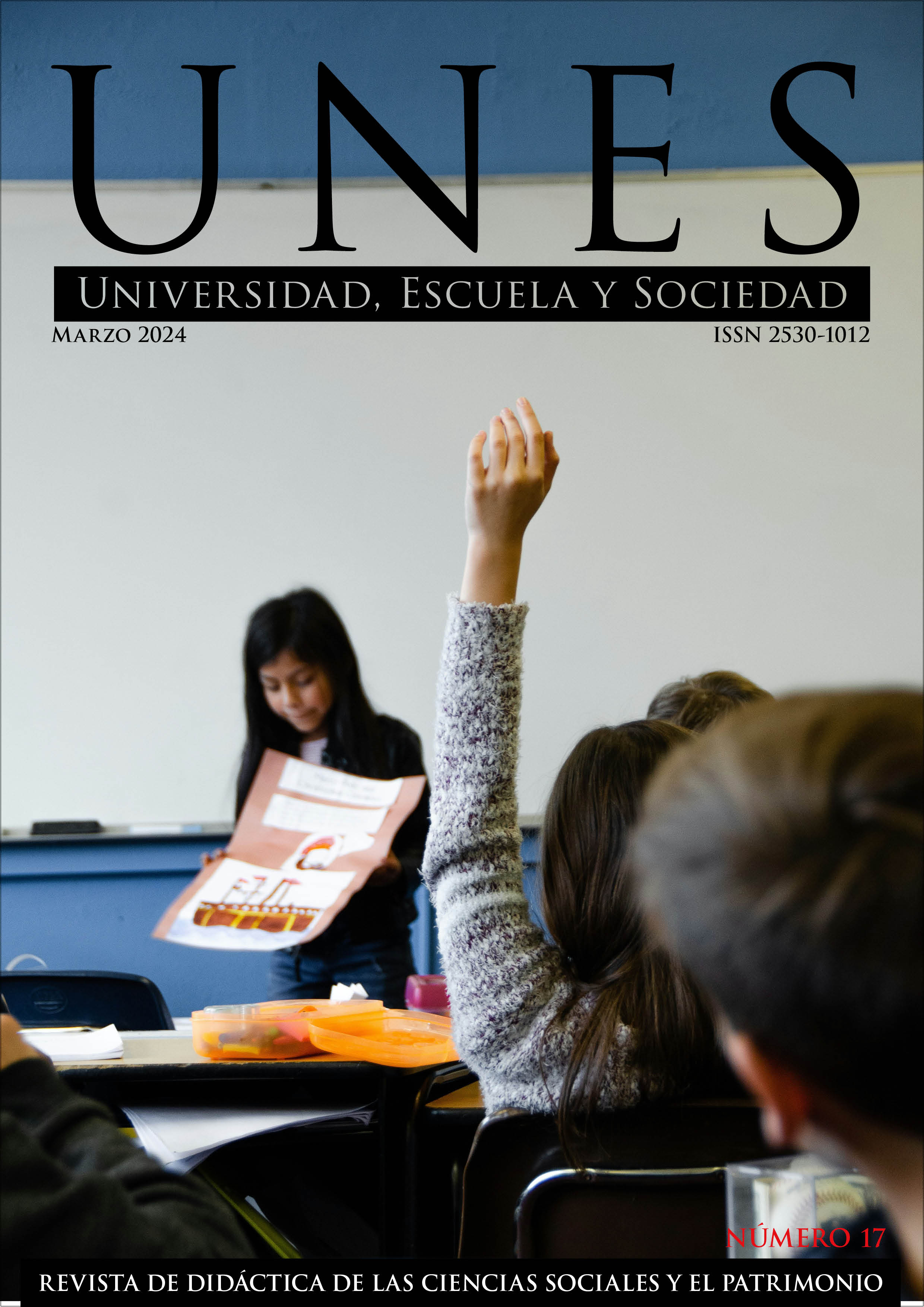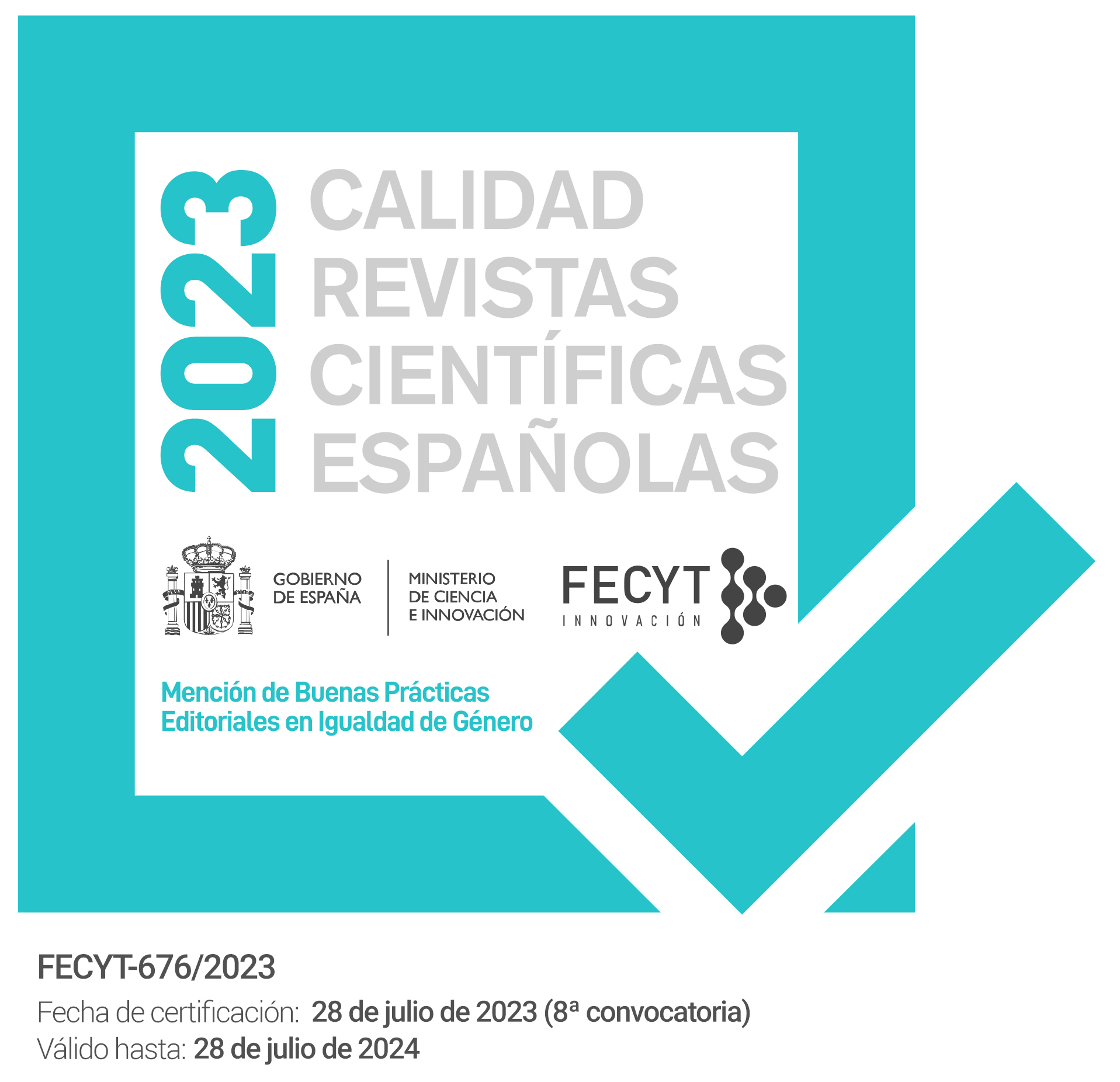University, School and Society. The question of social science teacher training in Nicaragua
DOI:
https://doi.org/10.30827/unes.i17.30070Keywords:
university, school, society, social sciences, teachersAbstract
The link between university, school and society is a topic of enormous value for higher education institutions in charge of teacher training for primary and secondary school. Based on this premise, the objective of this article is to analyze the incidence of the didactic strategies implemented in the different subjects of the Social Sciences program at UNAN-Managua, to articulate the formative management of the university with the school environment and the different social spaces, in addition, it highlights how the curricular conditions and the institutional operational strategies favor the link between university, school and society, and its impact on the three training profiles of the program: teaching, research and social promotion. The methodology used is based on the interpretative paradigm, qualitative approach and the application of a questionnaire with open and closed questions, also, methodologically, a validation and piloting process was carried out, and later its application to 60 participants of the study. In conclusion, it can be said that the link between University, School and Society, in teacher training, ensures the formation of relevant professionals for the different fields of action stated in the career curriculum.
Downloads
References
Bernal, C. (2010). Metodología de la investigación. (3ra edición). Pearson Educación.
Briones, S., Guitart, O. y Torres, O. (2018). La vinculación Universidad-Empresa-Gobierno: Una visión histórica y conceptual. Eca Sinergia, 9(2), 121-139. https://www.redalyc.org/journal/5885/588561702012/588561702012.pdf
Consejo Nacional de Universidades (CNU) (2022). Marco Estratégico de la Educación Superior (2022-2030).
Consejo Nacional de Universidades (CNU) (2023). Plan Nacional de Educación Universitaria 2023-2026.
Corral, Y. (2009). Validez y confiabilidad de los instrumentos para la recolección de datos. Revista ciencias de la educación, (33), 228-247.
Mato, A. (2020). La extensión universitaria y otras modalidades de vinculación social como fuentes de aprendizajes para transformar las universidades. Revista Heterotopías, 3(5):1-9. https://ri.conicet.gov.ar/bitstream/handle/11336/169680/CONICET_Digital_Nro.f1481756-2db2-43fa-8bbf-0b60cd381c7c_B.pdf?sequence=2
Niño, V. (2011). Metodología de la investigación. Ediciones de la U
Seáñez, Z. y Guaderrama, V. (2022). La vinculación social universitaria: un camino hacia la pertinencia social. Emerging Trends in Education, 4(8A), 121-142.
Universidad Nacional Autónoma de Nicaragua, Managua (UNAN-Managua) (2021). Diseño curricular para desarrollar competencias en la UNAN-Managua.
Universidad Nacional Autónoma de Nicaragua, Managua (UNAN-Managua) (2020). Proyecto Institucional UNAN-Managua.
Walker Janzen, W. (2022). Una síntesis crítica mínima de las portaciones de los paradigmas interpretativo y sociocrítico a la investigación educacional. Enfoques, 34(2), 13-33. http://www.scielo.org.ar/pdf/enfoques/v34n2/1669-2721-enfoques-34-02-13.pdf
Downloads
Published
How to Cite
Issue
Section
License
Copyright (c) 2024 Adolfo Alejandro Díaz Pérez

This work is licensed under a Creative Commons Attribution-NonCommercial-ShareAlike 4.0 International License.
Authors being published in this journal agree to the following terms:
The authors retain their copyrights but guarantee the journal's right to be the first publisher of the work, licensed under a Creative Commons Attribution-NonCommercial-ShareAlike 4.0 International license, which allows others to share the work, provided that they acknowledge its authorship and initial publication in this journal.
Authors may separately subscribe additional agreements for the non-exclusive distribution of the work published in the journal (for example, including it in an institutional repository or publishing it in a book), with recognition of its initial publication in this journal.
Authors are allowed and encouraged to disseminate their work electronically (for example, in institutional repositories or on their own websites) before and during the submission process, as this may result in productive exchanges, as well as more and earlier citations of the works to be published (See The Effect of Open Access) (in English).






 ISSN-e: 2530-1012
ISSN-e: 2530-1012









